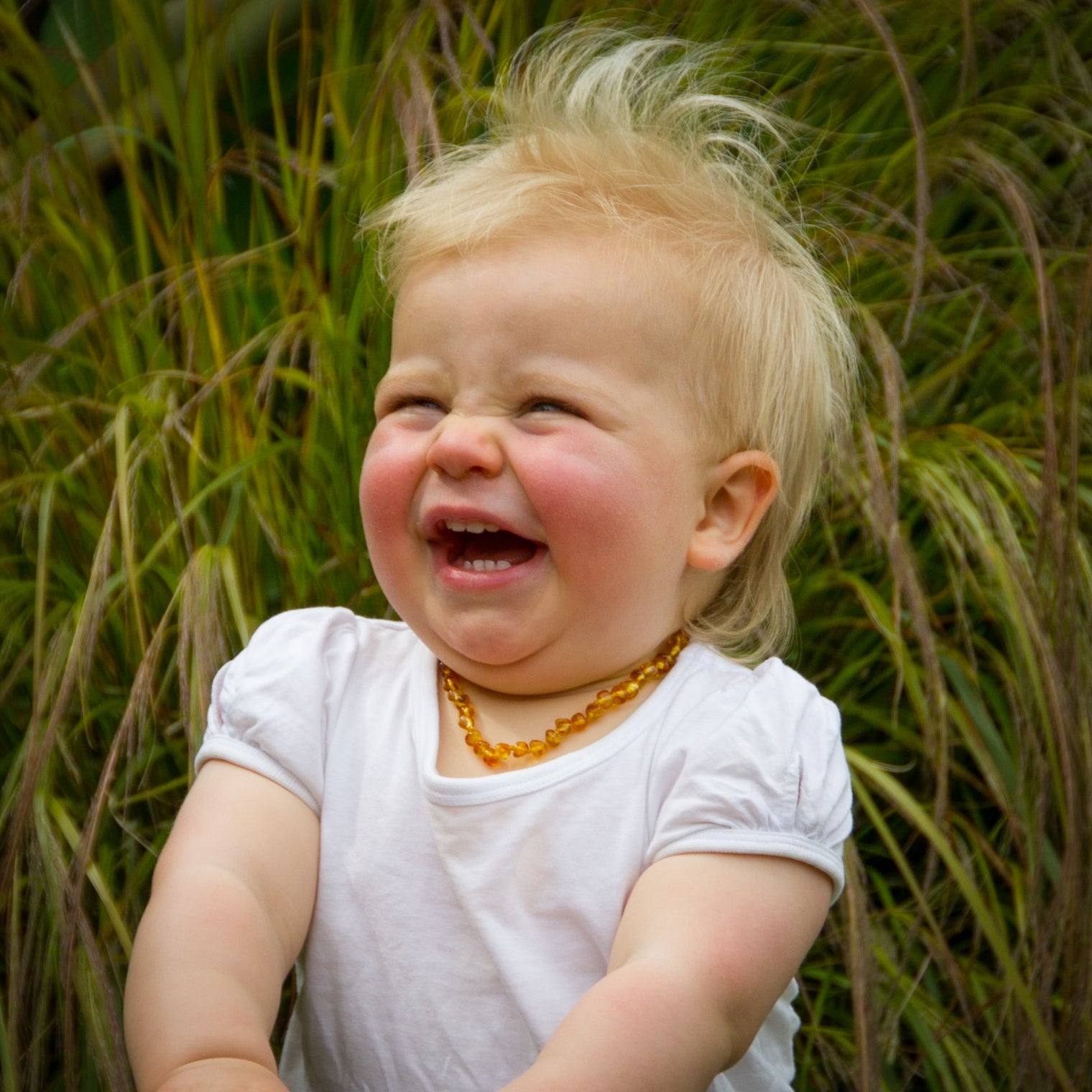So we now know that baby’s teeth will likely begin to emerge at six months of age. Yet the signs that they’re on the way can show as many as 2 to 3 months earlier! By familiarizing yourself with the signs of teething, you’ll ensure you’re ready to react to whatever the troublesome teething stage throws at you. So while bub might not know why they’re upset, sore, or out of sorts, you will!
1 - DROOLING
Your little bub can begin to drool excessively from around 10 weeks of age. This will continue through to at least 3 to 4 months. Baby Drooling Tip: Once the waterworks start, carry a cloth or tissue to mop up excess drool. This will help prevent chapping, which can lead to a red, sore rash.
2 - COUGHING AND GAGGING.
This excessive amount of drool often results in an increase in coughing and gagging. Which is completely normal given how much saliva they’re producing. It has to go somewhere! This shouldn’t be cause for concern; it’s a regular part of the teething process. And unless other signs of a cold accompany it, then little one is ok.
3 - BITING AND CHEWING
There’s nothing your little one enjoys more than chewing on anything within reach! Even so, an increased obsession with biting can be a sure sign that teeth will soon follow. This isn‘t a sign of aggression! Rather, this is baby’s efforts to relieve the pressure from the teeth pushing up through the gums. So don’t be surprised to find your fingers becoming baby’s #1 chew toy of choice.
4 – IRRITABILITY
Teething can cause bub to feel tired and irritable. Well, more than usual! Lasting for anywhere from a few hours through to a few days.
5 - CRYING
Some babies will progress through teething without so much as a peep. While others may suffer pain caused by the pressure of their teeth and the resulting inflammation of the gums. This can leave baby prone to the odd teary moment. Thankfully, the first teeth tend to be the most painful: it’s a new feeling for your little one. Though as time goes on, they do become more familiar with the sensation, and the crying should subside as a result.
6 - LACK OF APPETITE
The suction that comes with feeding can leave baby’s already sore mouth and gums that much sorer. So, don’t be surprised if they’re less cooperative when mealtime comes around. The key here is patience and perseverance. Though if this persists longer than a day or two, it’s recommended that you check in with your Pediatrician.
7- NIGHT WAKING
Teething can increase the amount of time you and bub spend staring at the clock while the rest of the world is sound asleep. It’s best to let this run its course, if you can.
8 - EAR PULLING AND CHEEK RUBBING
Here’s something you might now know: your baby’s ears and cheeks share the same nerve pathways as their gums. So teething pains can cause aches elsewhere. If you find your little one pulling at their ears or rubbing at their cheeks, this may be why: it’s their way of easing the discomfort. Ear Pulling Tip Pulling of the ears is also an early sign of ear infection. Which makes it easy to confuse the two. If you think this might be the case, seek the opinion of your local GP or Pediatrician.

